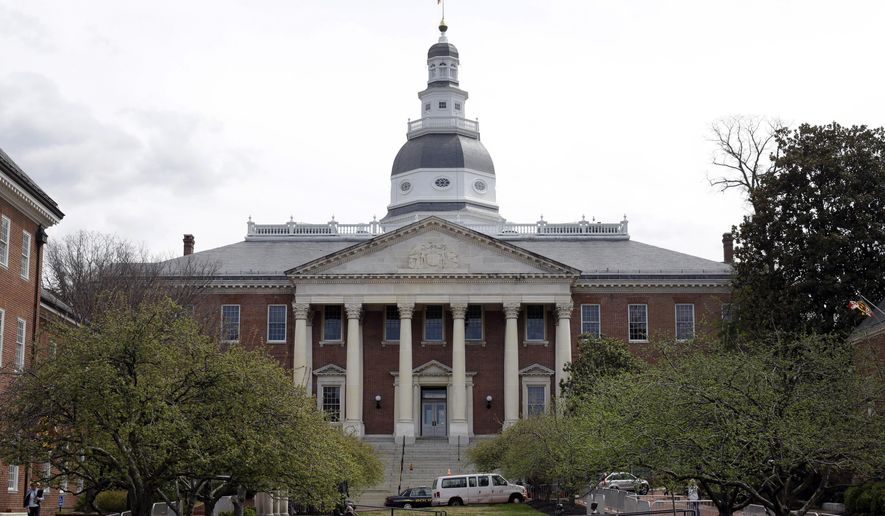ANNAPOLIS — A sweeping, multipart criminal justice reform bill has lawmakers aiming to send drug offenders to treatment programs and scale back mandatory minimum sentences in an effort to reduce incarceration rates without sacrificing public safety.
Advocates of the so-called “justice reinvestment” legislation say it would reduce the state’s inmate population and ensure minorities get a fair shake in sentences for drug possession. The Senate Judicial Proceedings Committee considered the bill Wednesday.
Sen. Robert A. Zirkin said that many drug addictions and mental health problems get lost in the system and keep cycling through jails.
“Putting somebody [convicted of heroin possession] into the prison system, the data will tell you, that person will end up hurting somebody somewhere down the road. They cycle in and out of the prison system,” the Baltimore County Democrat said. “Our criminal justice system has to be such that that person gets treatment up front, real treatment, not just slap on the wrist, slap on the wrist, slap on the wrist, then you throw them in prison for a while.”
A drug offender sentenced to treatment today waits, on average, 167 days in jail if a bed is not immediately available.
The legislation would make drug treatment and rehabilitation the standard response for low-level possession offenses, not jail. It also would direct the Health Department find a bed within 30 days of an offender’s sentencing, and reinvest the savings in community anti-crime efforts.
SEE ALSO: In D.C., proficiency in reading down among poor, black students
Advocates say such front-end reforms will save the state millions on corrections and reduce recidivism. The bill is based on recommendations from Maryland’s Justice Reinvestment Coordinating Council — a bipartisan group of legislators, corrections officers and government agencies.
According to the council’s report, the reforms would trim the state’s prison population by 3,930 inmates over the next 10 years and save nearly $250 million in corrections spending. Overall, the bill would cost $3.8 million next year, which includes $3.2 million in savings from sending people to less costly treatment programs.
The bill also contains widespread criminal justice reforms, such as scaling back mandatory minimum sentences for drug offenses like possession and redoing how Maryland monitors felons on parole and probation.
“Today, Maryland state prisons incarcerate over 20,000 offenders at a cost of $1.3 billion annually,” state Attorney General Brian Frosh said. “While other states have experienced dramatic declines in prison populations over the past decade, Maryland’s declines have been modest. This is because too many of its resources are directed at low-risk, nonviolent offenders.”
In a General Assembly session rife with partisan bickering, the suggested reforms have support from lawmakers in both parties, Democratic leaders and Republican Gov. Larry Hogan.
The legislation does not have many outright opponents, as it was based on reforms that received consensus approval from the commission, but some lawmakers find themselves getting stuck on particular provisions, such as one that would increase threshold for felony from $1,000 to $2,000.
SEE ALSO: Maryland’s highest court to hear case of officer charged in death of Freddie Gray
Baltimore County State’s Attorney Scott Shellenberger appealed to lawmakers, saying he is not entirely happy with the bill but that the reforms are needed.
“Are there items in the bill I don’t like? Yep. Are there items in this bill that I had to hold my nose and say ’yes’ to? Absolutely,” he said. “But this is a bill whose sum far exceeds its individual parts.”
Local governments also raised concerns, saying they would be expected to pay the costs for treatment. The Hogan administration has indicated it is looking at how to increase the state’s spending for treatment programs.
Mr. Zirkin said many of the less contentious items are “a ball in play” and would be modified in coming weeks, but that the truly contentious items had been put in a secondary justice reinvestment bill that took the non-consensus items.
The second bill proposes eliminating mandatory minimums for all drug offenses, a much stronger step than the main bill’s. Critics of mandatory minimums say they largely affect minorities.
African Americans make up 30 percent of the state’s population but account for nearly 70 percent of the prison population, and more than 80 percent of those are sentenced under mandatory minimums, according to the Justice Policy Institute.
Sen. Nathaniel McFadden, Baltimore Democrat, said such opposition was “absurd” and that mandatory minimums should be ended.
“They’re looking for something to get hooked on,” he said.
Christopher Shank, the commission leader and Mr. Hogan’s deputy chief of staff, said the administration could not support eliminating mandatory minimums for drug offenses altogether, and many advocates said trying to reduce the incarcerated population and then increasing a sentence for second degree murder were at odds.
Despite opposition to the second bill, and lawmakers’ tendencies to nitpick at particular parts of the main bill they don’t like, Mr. Shank said it was critical the overall bill be kept in one piece in order to ensure comprehensive reform that works as a whole.
“Resist the urge to start picking this apart,” Mr. Shank told the committee. “We can’t effectuate the kinds of reforms we’re talking about unless it’s comprehensive.”
• Anjali Shastry can be reached at ashastry@washingtontimes.com.




Please read our comment policy before commenting.